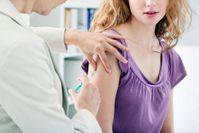
The human papillomavirus (HPV) is the most common sexually transmitted infection (STI) in the country. Since there is no cure and this condition can cause complications, vaccination against HPV is an important part of women’s health services. If you’re sexually active, knowing more about this condition will keep you healthy. To help you care for your body, here are some of the common questions people have about this STI.
FAQ on HPV
How common is it?
Nearly every person who is sexually active will get at least one HPV infection in their lifetime. Part of the reason it’s so prevalent is that people rarely know that they have it, so they transmit it to others. Around 80 million people nationwide have some form of HPV, and 14 million people get infected every year.
How do people get it?
People get HPV from sexual contact, particularly vaginal or anal sex. It can also be contracted through oral sex. You can get it even if your partners don’t show any symptoms, and condoms and dental dams don’t offer complete protection.
What problems can an HPV infection cause?
The most common and least harmful symptom of HPV is genital warts. Two types of HPV cause most cases of these warts.
HPV infections can also cause cancers of the cervix, vagina, and vulva in women, cancers of the penis in men, and cancers of the anus and back of the throat in both women and men. HPV is responsible for 90% of cervical cancer cases. Just in 2019 HPV was linked to 34,700 cancer cases in the U.S.
What is the HPV vaccine?
 Luckily, there is a relatively new vaccine that provides close to 100% protection against this condition. It’s sold under the names Cervarix®, Gardasil®, and Gardasil® 9. It’s approved by the U.S. Food and Drug Administration (FDA). The vaccine requires two to three doses and side effects are rare.
Luckily, there is a relatively new vaccine that provides close to 100% protection against this condition. It’s sold under the names Cervarix®, Gardasil®, and Gardasil® 9. It’s approved by the U.S. Food and Drug Administration (FDA). The vaccine requires two to three doses and side effects are rare.
All children who are 11 to 12 years old are recommended to receive an HPV vaccine. Be sure to talk with your health care provider at your next visit. Vaccination can begin as early as age nine.
Hillside Family Medicine in Anchorage, AK, provides vaccination counselling services and can administer the HPV vaccine. HPV screening is also available with a routine annual pap smear. Their focus is on the patient as a whole, not just the health issue at hand. Whether you need an annual checkup or minor surgery, their providers and medical assistants will handle all of your health and wellness needs. Visit their website to learn about their services or call (907) 344-0200 to schedule an appointment.
About the Business
Have a question? Ask the experts!
Send your question

